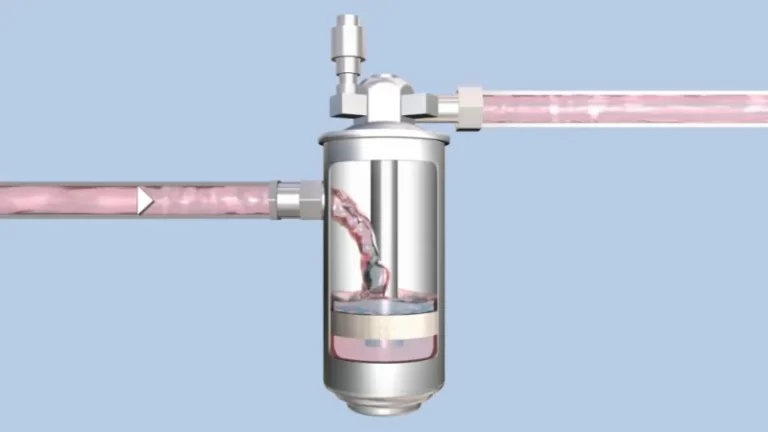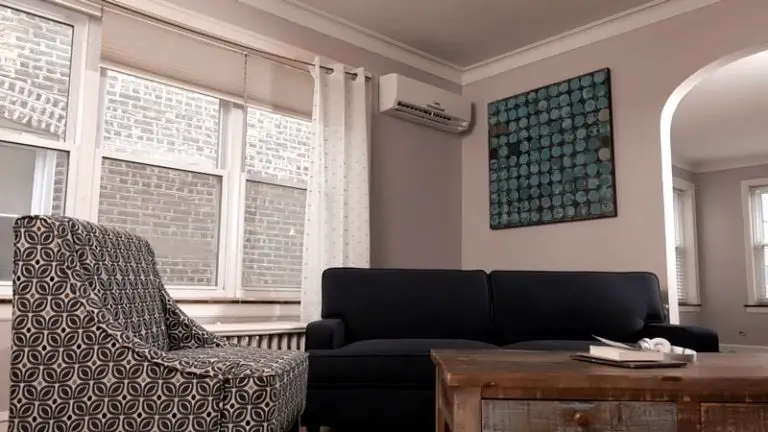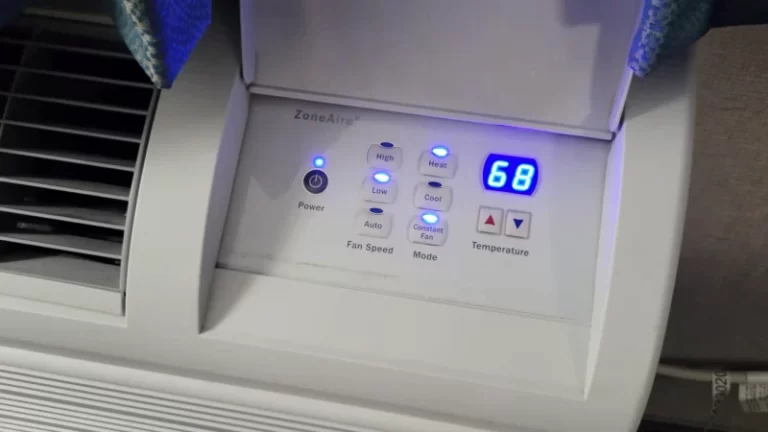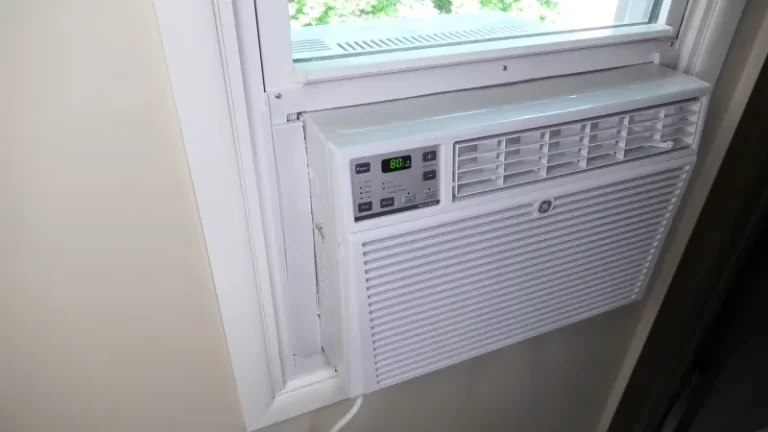How Often Should You Clean Your Air Conditioner?
Air conditioners play an essential role in keeping our homes comfortable, especially during hot and humid weather. However, they can also be a significant source of energy consumption and expense if not properly maintained.
To ensure optimal energy efficiency, cost savings, and indoor air quality, it’s important to perform regular maintenance on your air conditioner, including cleaning or replacing its filters and components.
In this article, we’ll explore the question of how often you should clean your air conditioner, taking into account different factors such as filter type, usage, and air quality. By following the tips and guidelines presented here, you can keep your air conditioner in top shape and enjoy its benefits for years to come.
You'll Learn About
Cleaning Your Air Conditioner
According to the Department of Energy, the most important maintenance task for air conditioners is to regularly replace or clean their filters. Clogged and dirty filters reduce airflow and significantly decrease the system’s efficiency, leading to increased energy consumption and higher utility bills.
How often you should clean your air conditioner’s filters depends on various factors, such as the type of filter, the amount of use, and the air quality in your home. As a general rule, it’s recommended to check the filters every month and clean or replace them as needed. However, if you have pets, allergies, or live in a dusty area, you may need to clean the filters more frequently, such as every two weeks.
Other parts of the air conditioner, such as the coils, fins, and condensate drains, may also require regular maintenance to ensure optimal performance. It’s recommended to have a professional inspect and clean these components at least once a year. Additionally, make sure to keep the outdoor unit free of debris and vegetation, and maintain proper clearance around it.
Regular air conditioner maintenance not only improves energy efficiency but also extends the lifespan of the system, reduces the risk of breakdowns, and improves indoor air quality. So, don’t overlook this essential task and keep your air conditioner in top shape!
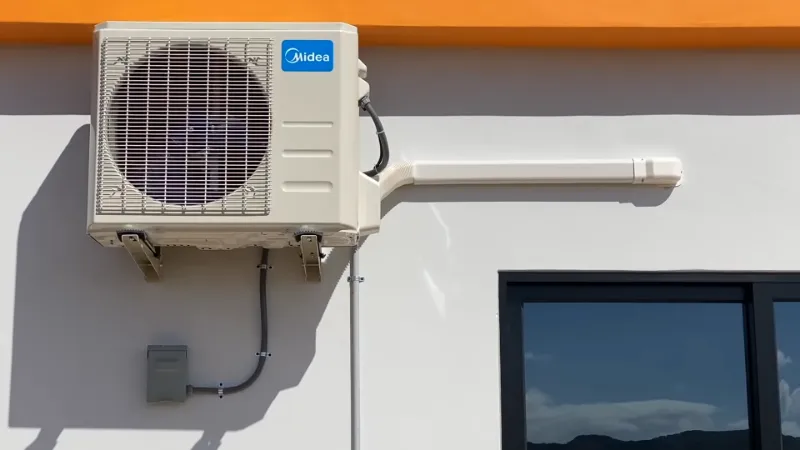
Why Air Conditioner Maintenance Matters
Regular air conditioner maintenance is essential for many reasons. First and foremost, it can significantly improve the efficiency of your system, which in turn can lead to cost savings. When an air conditioner is clogged with dirt and debris, it has to work harder to cool the air, which consumes more energy and raises your electricity bill.
By cleaning or replacing its filters and components, you can reduce the strain on your air conditioner and keep it running smoothly.
Another benefit of regular air conditioner maintenance is its impact on the longevity and reliability of your system. When air conditioners are neglected, they are more likely to break down and require costly repairs.
On the other hand, by performing routine maintenance, you can identify and address minor issues before they turn into major problems. This can prolong the life of your air conditioner and save you money in the long run.
In addition to energy efficiency and reliability, air conditioner maintenance can also have a positive impact on indoor air quality. Air conditioners can accumulate dust, pollen, pet dander, mold, and other allergens over time, which can circulate in your home and cause respiratory problems. By cleaning or replacing your air conditioner’s filters and components, you can remove these pollutants and improve the air quality in your home.
Neglecting air conditioner maintenance, on the other hand, can result in a range of costs and risks. For example, if your air conditioner is not working efficiently, you may end up paying more for energy bills and repairs than you would with regular maintenance.
In addition, a poorly maintained air conditioner is more likely to break down, which can leave you without cooling when you need it the most. Furthermore, neglecting air conditioner maintenance can also pose health risks, such as allergies, respiratory infections, or even carbon monoxide poisoning if there are gas leaks or faulty components.
regular air conditioner maintenance is a wise investment that can provide many benefits, such as improved efficiency, longevity, reliability, and air quality. Neglecting air conditioner maintenance can lead to higher costs, breakdowns, repairs, and health risks. By prioritizing air conditioner maintenance, you can ensure that your system runs smoothly and keeps you comfortable all year round.
Factors That Affect Air Conditioner Maintenance Frequency
How often you should clean your air conditioner depends on several factors. Here are some of the main ones to consider:
Type of Filter
The type of filter in your air conditioner can affect how often it needs to be cleaned or replaced. Reusable filters may need to be cleaned more frequently than disposable ones, while pleated or HEPA filters may last longer than fiberglass ones. Electrostatic filters can be more effective at capturing small particles, but they may also get clogged more quickly.
Amount of Use
The more you use your air conditioner, the more often you will need to clean or replace its filters and components. If you use your air conditioner daily or for long cycles, it may need to be cleaned more often than if you only use it occasionally or for short cycles.
Air Quality
The air quality in your home can also affect how often you need to clean your air conditioner. If you live in an area with high levels of dust, pollen, pet dander, smoke, or mold, your air conditioner may get dirty more quickly and require more frequent cleaning.
Indoor Environment
The indoor environment of your home can also influence how often you need to clean your air conditioner. If your home is humid or poorly ventilated, it can create conditions that promote the growth of mold and bacteria, which can clog your air conditioner and reduce its efficiency.
It’s important to note that there is no one-size-fits-all answer to how often you should clean your air conditioner. The frequency of maintenance will depend on your specific situation and the recommendations of your air conditioner’s manufacturer.
Be sure to read the owner’s manual and follow the manufacturer’s guidelines for cleaning and maintenance. As a general rule, it’s a good idea to check your air conditioner’s filters at least once a month and clean or replace them as needed.
However, if you notice reduced airflow, strange odors, or other signs of trouble, it’s best to address them promptly and seek professional help if necessary. By taking a proactive approach to air conditioner maintenance, you can ensure that your system runs efficiently and effectively, and provides you with the comfort you need.
How Often to Clean Air Conditioner Filters
Air filters are an essential part of air conditioners, as they help trap dust, dirt, pollen, and other contaminants that can affect the quality of the air you breathe. Filters also play a crucial role in maintaining proper airflow and efficiency, as clogged or dirty filters can reduce the system’s ability to cool or heat your home effectively. That’s why it’s important to clean or replace your air conditioner filters regularly.
The frequency of filter cleaning or replacement will depend on several factors, including the type of filter and its usage. Here are some general guidelines:
Disposable Fiberglass Filters
These are the most basic type of filters, and they are typically the least expensive. They are also the most prone to clogging, so they should be checked and cleaned or replaced every 30 days.
Pleated Filters
These are made of more durable material and have more surface area than fiberglass filters, so they can capture more particles and last longer. They should be checked and cleaned or replaced every 3-6 months, depending on usage.
Electrostatic Filters
These filters use static electricity to attract and trap particles, so they are more effective than fiberglass or pleated filters. They should be checked and cleaned or replaced every 3-6 months, depending on usage.
Hepa Filters
These filters are the most efficient at capturing small particles, such as allergens and viruses. They are typically used in hospitals, clean rooms, or other environments that require high air quality. They should be checked and cleaned or replaced every 12 months.
To Check and Clean Your Air Filters, Follow These Steps
- Turn off the air conditioner and locate the air filter compartment, which is usually near the air handler or return air duct.
- Remove the filter from the compartment and inspect it for dirt, dust, or damage.
- If the filter is dirty, gently vacuum or brush off the debris, or rinse it with water if it’s washable.
- If the filter is damaged, discolored, or has holes, replace it with a new one of the same size and type.
- Reinstall the filter in the compartment, making sure it fits snugly and the arrows on the filter frame point in the direction of airflow.
Regularly cleaning or replacing your air conditioner filters can help you maintain good indoor air quality and extend the life of your system. It’s a simple but important maintenance task that can save you money and headaches in the long run.
How Often to Clean Air Conditioner Components
Air conditioner filters are not the only part of the unit that needs regular cleaning and maintenance. Other components of the air conditioner can also become dirty or clogged over time, reducing the unit’s efficiency and performance. Here are some key components that should be inspected and cleaned regularly:
Evaporator and Condenser Coils
These coils are responsible for transferring heat between the indoor and outdoor units. Dirty or clogged coils can reduce the efficiency of the air conditioner, making it work harder and increasing energy costs. It is recommended to have the coils inspected and cleaned by a professional technician once a year
Condensate Drain and Pan
This part of the air conditioner collects condensation that forms during the cooling process. Over time, dirt and debris can accumulate, leading to clogs and potential water damage. It is important to check and clean the condensate drain and pan regularly, typically every three to six months
Blower and Motor
The blower and motor are responsible for circulating air throughout the air conditioner and into the home. Dust and debris can accumulate on the blower wheel and motor, causing the system to work harder and reducing its lifespan. The blower and motor should be inspected and cleaned once a year
Ductwork and Vents
The ductwork and vents that distribute air throughout the home can also become dirty and clogged, reducing the efficiency of the air conditioner and affecting indoor air quality. It is recommended to have the ductwork and vents inspected and cleaned by a professional technician every three to five years
When inspecting and cleaning air conditioner components, it is important to follow safety precautions and use the proper tools. For example, turn off the power to the unit before performing any maintenance and wear gloves and safety glasses to protect yourself from sharp edges and debris.
Additionally, consider hiring a professional HVAC technician to perform a yearly tune-up and cleaning. They have the knowledge, skills, and tools needed to ensure that your air conditioner is working efficiently and safely.
Recommended Air Filter Maintenance Frequency by Type and Usage
| Filter Type | Usage | Maintenance Frequency |
|---|---|---|
| Disposable Fiberglass | Daily Use | Every 30 days |
| Disposable Fiberglass | Occasional Use | Every 90 days |
| Pleated | Daily Use | Every 3-6 months |
| Pleated | Occasional Use | Every 6-12 months |
| Electrostatic | Daily Use | Every 3-6 months |
| Electrostatic | Occasional Use | Every 6-12 months |
| HEPA | Daily Use | Every 12 months |
| HEPA | Occasional Use | Every 24 months |
Note: The above frequency recommendations are general guidelines and may vary based on factors such as air quality, indoor environment, and manufacturer’s recommendations. It is important to inspect and replace/clean air filters regularly to maintain air conditioner efficiency and air quality.
Frequently Asked Questions
How Can I Tell if My Air Conditioner’s Evaporator and Condenser Coils Need Cleaning?
A: You may notice signs such as reduced airflow, longer cooling times, higher energy bills, or ice buildup on the indoor or outdoor unit. You can also inspect the coils visually and check for dirt, debris, or mold growth. If you’re not sure, it’s best to consult a professional HVAC technician who can use specialized tools and methods to clean the coils safely and effectively.
Can I Clean My Air Conditioner’s Condensate Drain and Pan Myself?
A: Yes, you can clean the drain and pan using a vacuum or a mixture of water and vinegar or bleach. However, it’s important to turn off the power to the unit and wear protective gloves and eyewear to prevent electrical shock or exposure to harmful bacteria.
You should also avoid using sharp objects or excessive force that may damage the drain or pan. If you encounter persistent clogs or leaks, it’s best to have a professional inspect and repair the drain line.
Should I Cover My Air Conditioner When Not in Use?
A: It depends on the climate and the type of air conditioner. If you live in a region with heavy snow, ice, or debris, it may be beneficial to cover the outdoor unit with a breathable, waterproof cover to protect it from damage.
However, if you have a ductless mini-split system, you should not cover the indoor or outdoor unit as it may restrict airflow and cause operational issues. If you’re not sure, consult the manufacturer’s recommendations or a professional HVAC technician. You can also try the filter button.
How Can I Improve the Indoor Air Quality of My Air Conditioner?
A: You can enhance the air quality by using high-efficiency air filters, such as HEPA or electrostatic filters, that capture airborne particles and pollutants. You can also consider installing a UV air purifier or a ventilation system that brings in fresh outdoor air and removes stale indoor air. Additionally, you can minimize indoor pollutants by keeping your home clean, controlling humidity levels, and avoiding smoking or burning candles or incense.
How Often Should I Have My Air Conditioner Serviced by a Professional?
A: It’s recommended to have a yearly air conditioner tune-up and cleaning by a licensed HVAC technician. The technician can inspect and clean the various components of the air conditioner, check for any leaks or damages, lubricate moving parts, and test the thermostat and the refrigerant levels.
This can help prevent breakdowns, improve efficiency and performance, and extend the lifespan of the air conditioner. However, if you notice any unusual sounds, smells, or behaviors from your air conditioner, you should have it checked immediately to avoid further damage or safety hazards.
Conclusion
Maintaining and cleaning your air conditioner is crucial to ensuring its efficiency, longevity, and indoor air quality. While there is no one-size-fits-all answer to how often you should clean your air conditioner’s filters and components, factors such as the type of filter, the amount of use, the air quality, and the indoor environment play a significant role.
Generally, it’s recommended to clean or replace air filters every 30 days to 12 months, depending on their type and usage, and to inspect and clean other components, such as coils, drains, blowers, and ducts, at least once a year.
By following the manufacturer’s recommendations and hiring a professional HVAC technician when needed, you can avoid costly repairs, breakdowns, and health risks, and enjoy a comfortable and healthy indoor environment.
Remember to prioritize your air conditioner’s maintenance and cleaning, especially before the hot and humid summer months, and save energy and money while staying cool.

